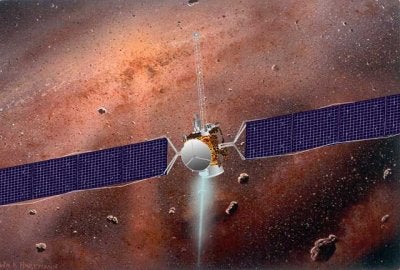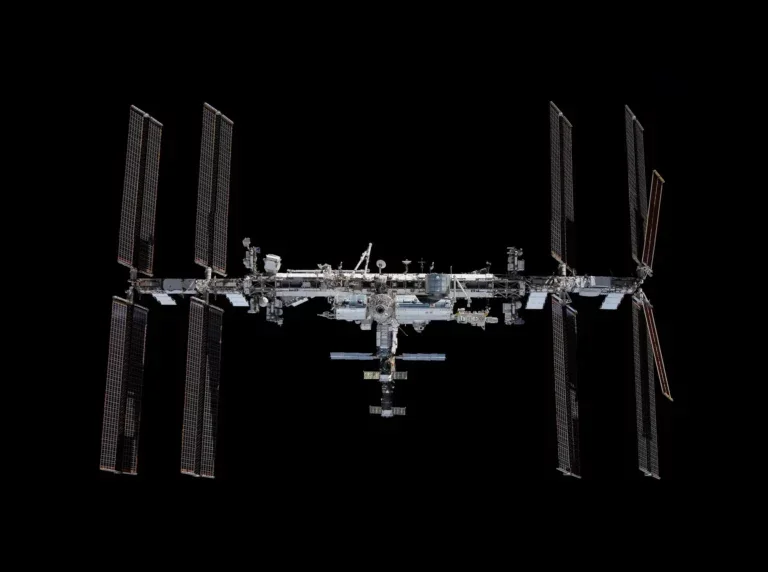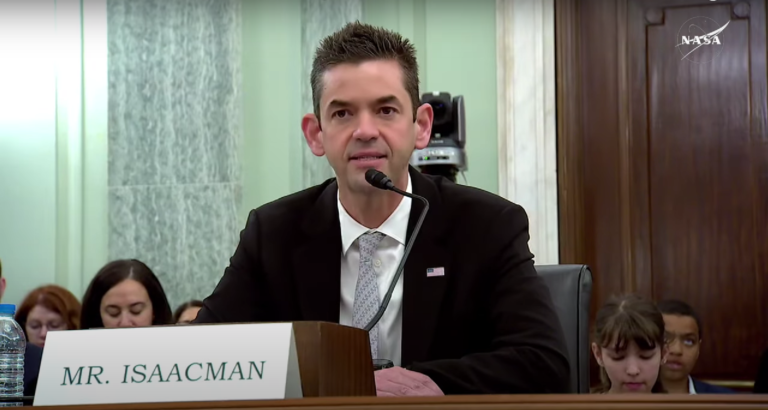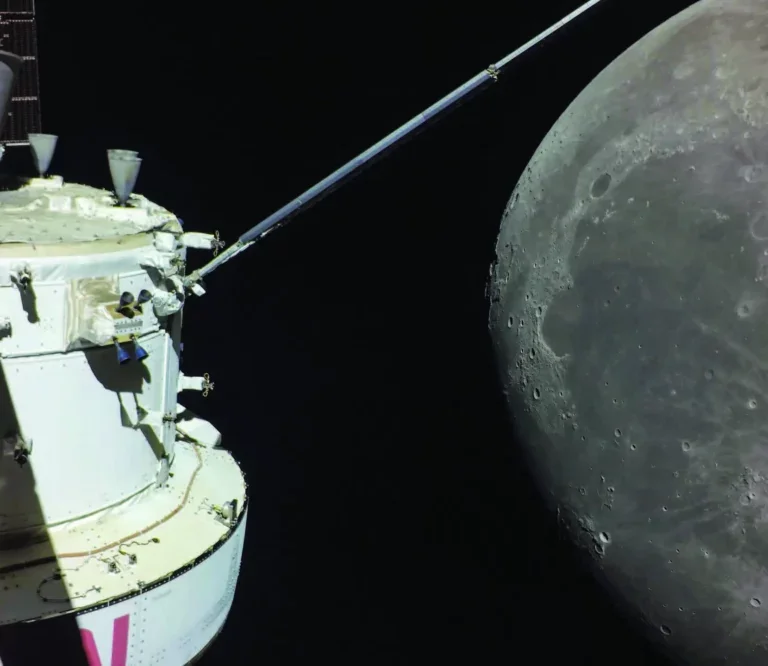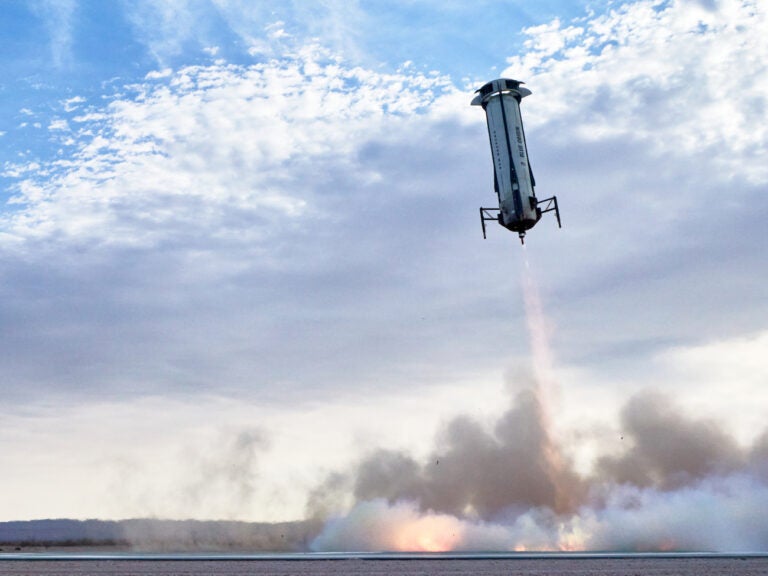Scientists meeting with NASA officials Monday at the Lunar and Planetary Science Conference in League City, Texas, voiced their displeasure as the agency cancels or delays new space missions and reduces research funding. NASA is diverting money slated for science programs in order to fly the space shuttle through 2010, complete the International Space Station, and develop the shuttle’s successor.
“I haven’t seen it this bad in decades,” said Clark Chapman of the Southwest Research Institute in Boulder, Colorado. Cancelled missions include Dawn, a spacecraft that would have visited the large asteroids Vesta and Ceres, and Terrestrial Planet Finder, which would search for earthlike planets around other stars.
Mary Cleave, associate administrator for NASA’s Science Mission Directorate, summed up the proposed budget in a standing-room-only session. “Science gets 1.5 percent growth from FY 2006 to 2007, 1 percent per year thereafter,” she said.
“The total up there — $1.8 billion — is a lot of money,” said Andy Dantzler, director of NASA’s Solar System Division. “If we use it smartly, we can do a lot” of exploration. He described it as a “pretty healthy budget” but added, “It’s not what we’re used to.”
“Tell that to the graduate students and postdocs who’ll be let go,” said Glenn MacPherson, a geologist at the Smithsonian Institution and a member of the team investigating comet samples brought to Earth by the Stardust mission. “Sample-return missions are more unpopular now at headquarters than ever before,” he said, pointing to the great science return from Stardust and Genesis reported at this conference.
MacPherson said NASA’s new organizational structure left him feeling more isolated from the planning process, adding there was a “science vacuum” on the top floor of NASA headquarters in Washington. Both laughter and applause followed.
“I don’t understand why you’re so angry. We really care about this program,” said Cleave.
“This was not a good way to treat things in terms of international cooperation,” Neukum commented. “Things are degrading, and I’m not the only one who feels that way.”
Cleave said NASA would begin a series of talks with international partners, to which one scientist replied, “One would hope there’s going to be some listening in there, too.”
Asked why NASA has repeatedly passed on proposals for a mission to Europa, a moon of Jupiter believed to harbor a global ocean beneath its icy crust, Cleave replied, “We don’t have the money to do it now.” She continued: “The way I understand it, the science budgets at DOE [Department of Energy] and NIST [National Institute of Standards and Technology] have been slighted in the past. This is a way to restore balance.”
In an open letter distributed at the conference, Texas Congressman John Culberson exhorted scientists and engineers to write appropriations committee chairmen in both the House and Senate and ask them to move at least $1 billion more into NASA’s budget from other areas. He suggests taking the funds from the Department of Homeland Security 2007 budget request.
“Homeland Security has a surplus of at least $6.8 billion sitting in the U.S. Treasury that was intended for first responders but has not been spent in over 3 years,” Culberson wrote. “Make Homeland Security spend $1 billion before we give them another … and use that $1 billion now where it is needed most for the nation’s security in the future — for scientific research and planetary exploration that NASA is now canceling.”
Asked about restoring the 50-percent cut in astrobiology funding, Cleave said the money has to come from somewhere. “It means we’ll cut a mission.”
Despite Monday’s sharp exchange, most scientists seemed to acknowledge the difficulty in parsing NASA’s funds given all that the agency plans to do by 2010. “Yes, this is difficult,” says Dan Durda of the Southwest Research Institute. “But this is the first time NASA has had a definite direction in decades. In the end, we’ll all benefit.”
Cleave suggested international cooperation could help solve some of the funding problems. “We will all do better with our international partners,” she said, adding, “And yes, we’ll listen.”

